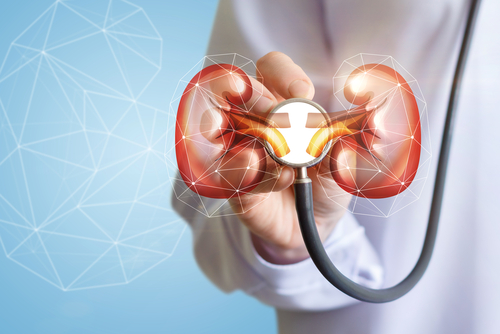Kidney Infections Can Mimic AAV Symptoms, Case Study Finds

Blood vessels in the kidneys that swell due to an infection can mimic ANCA-associated vasculitis (AAV), making diagnosis and treatment of these two conditions challenging, a case study shows.
Identifying and treating infections associated with AAV are essential to helping patients, the researchers said.
The study, “Diagnostic and treatment challenge of unrecognized subacute bacterial endocarditis associated with ANCA-PR3 positive immunocomplex glomerulonephritis: a case report and literature review,” was published in the journal BMC Nephrology.
In AAV, an autoimmune disorder, small blood vessels in the kidneys swell — a condition called glomerulonephritis (GN) — affecting kidney function.
But GN can also be caused by infection and antibodies that target proteinase 3 (PR3) and/or myeloperoxidase (MPO).
The symptoms of AAV GN and infection-related GN can be quite similar, but recommended treatments are very different.
“Diagnosis and treatment of either ANCA disease or silent infection-related GN is complicated and is a huge treatment challenge,” the report noted.
These difficulties are exemplified by the case of a 57-year-old man, admitted to a hospital in Slovenia with a prolonged dry cough, anemia, an enlarged liver and spleen, and after six months of weight loss.
He was known to have a condition called neurofibromatosis type 1, a genetic disorder that causes changes to skin color and the growth of benign tumors of the skin, brain, and elsewhere. He also had problems with his heart valves.
A physical examination found numerous benign skin tumors, a heart murmur, and an enlarged spleen. Lab tests showed a higher-than-normal level of creatinine (a marker for kidney disease), high levels of urine protein, anemia, a low platelet count, and no evidence of ANCA.
While hospitalized, he had a sudden loss of hearing in one ear and developed severe vertigo. A computerized tomography (CT) and MRI scans found microscopic bleeding in the brain.
As all these tests pointed to GN with systemic disease, he was referred to the nephrology (kidney) department. Abdominal ultrasound and CT scans confirmed an enlarged liver and spleen, and repeat blood tests eventually found ANCA antibodies targeting PR3.
Due to poor overall health, the man could not initially undergo a kidney biopsy to confirm the diagnosis. He was put on antibody therapy until his condition improved enough for an “urgent” biopsy.
Signs of bacterial sepsis were seen after the biopsy, along with further kidney deterioration. The bacteria Streptoccus cristatus was isolated from blood cultures. An echocardiogram also found a bacterial infection of the heart valves.
Finally, biopsy results pointed to infection-related GN. Accordingly, he was given the antibiotic penicillin.
As it was still uncertain whether ANCA might be driving his disease, high doses of the anti-inflammatory steroid methylprednisolone were started. These led to improvement in his kidneys and overall health. One week later, he underwent surgery to treat the heart valve infection, and his kidneys improved further.
The man was discharged one month after this surgery. While his spleen had lessened in size and he no longer had vertigo, he still had elevated levels of creatinine and ANCA-PR3 antibodies.
More lab tests were done and a second biopsy performed six months later. His creatinine levels had normalized and there was no evidence of ANCA-PR3 antibodies. Results of the second biopsy showed complete resolution without a sign of infection.
Four years after his first biopsy, the man now has stable kidney function and is ANCA-PR3 negative.
This case “underlines the importance of recognizing and aggressively treating any possible coexisting bacterial endocarditis or other chronic infection in ANCA positivity,” the investigators wrote.
“It is the most important step for complete and stable remission,” they concluded.






